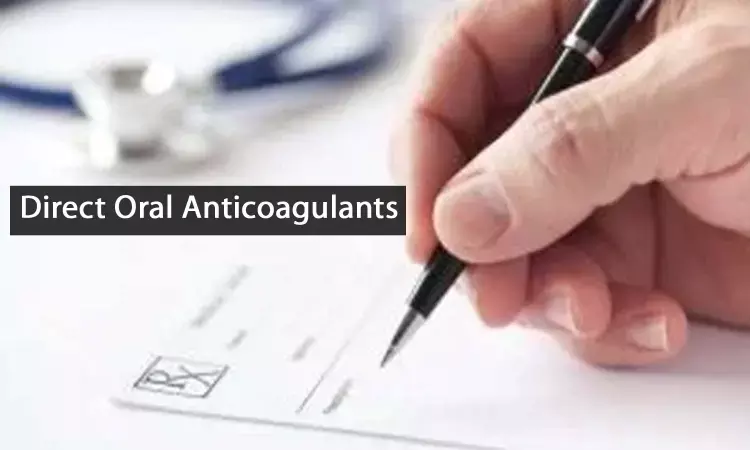- Home
- Medical news & Guidelines
- Anesthesiology
- Cardiology and CTVS
- Critical Care
- Dentistry
- Dermatology
- Diabetes and Endocrinology
- ENT
- Gastroenterology
- Medicine
- Nephrology
- Neurology
- Obstretics-Gynaecology
- Oncology
- Ophthalmology
- Orthopaedics
- Pediatrics-Neonatology
- Psychiatry
- Pulmonology
- Radiology
- Surgery
- Urology
- Laboratory Medicine
- Diet
- Nursing
- Paramedical
- Physiotherapy
- Health news
- Fact Check
- Bone Health Fact Check
- Brain Health Fact Check
- Cancer Related Fact Check
- Child Care Fact Check
- Dental and oral health fact check
- Diabetes and metabolic health fact check
- Diet and Nutrition Fact Check
- Eye and ENT Care Fact Check
- Fitness fact check
- Gut health fact check
- Heart health fact check
- Kidney health fact check
- Medical education fact check
- Men's health fact check
- Respiratory fact check
- Skin and hair care fact check
- Vaccine and Immunization fact check
- Women's health fact check
- AYUSH
- State News
- Andaman and Nicobar Islands
- Andhra Pradesh
- Arunachal Pradesh
- Assam
- Bihar
- Chandigarh
- Chattisgarh
- Dadra and Nagar Haveli
- Daman and Diu
- Delhi
- Goa
- Gujarat
- Haryana
- Himachal Pradesh
- Jammu & Kashmir
- Jharkhand
- Karnataka
- Kerala
- Ladakh
- Lakshadweep
- Madhya Pradesh
- Maharashtra
- Manipur
- Meghalaya
- Mizoram
- Nagaland
- Odisha
- Puducherry
- Punjab
- Rajasthan
- Sikkim
- Tamil Nadu
- Telangana
- Tripura
- Uttar Pradesh
- Uttrakhand
- West Bengal
- Medical Education
- Industry
Low-Dose DOAC Offers Superior Balance of Efficacy and Safety Over DAPT After LAAO: ADALA Trial

Spain: In a new study published in JAMA Cardiology, the ADALA randomized clinical trial has unveiled new insights into post-procedural care following left atrial appendage occlusion (LAAO). The trial involving 90 participants compared the safety and efficacy of low-dose direct oral anticoagulation (DOAC) against dual antiplatelet therapy (DAPT) after LAAO procedures.
The findings suggest that low-dose direct oral anticoagulation may be a safe and effective antithrombotic therapy for patients following LAAO. The researchers found that low-dose DOAC demonstrated a more favorable balance of efficacy and safety compared to dual antiplatelet therapy after LAAO, with fewer device-related thrombotic events, comparable rates of thromboembolic events, and equivalent major bleeding risks.
The LAAO procedure reduces the risk of stroke in patients with atrial fibrillation who are at high risk of embolism. Traditionally, patients have been prescribed DAPT—typically a combination of aspirin and clopidogrel—to prevent thromboembolic events following the procedure. However, optimal antithrombotic therapy after percutaneous LAAO is not well established as no randomized evaluation has been performed to date.
Against the above background, Xavier Freixa, Department of Cardiology, Institut Cardiovascular, IDIBAPS, Hospital Clinic of Barcelona, Barcelona, Spain, and colleagues sought to compare the safety and efficacy of low-dose DOAC versus DAPT for three months after LAAO.
The ADALA study was an investigator-initiated, multicenter, prospective, open-label, randomized clinical trial. The trial began on June 12, 2019, across three European sites. It concluded prematurely on August 28, 2022, with only 60% of the targeted sample size enrolled due to slower recruitment rates caused by the COVID-19 pandemic.
Patients who underwent successful left atrial appendage occlusion were randomly assigned in a 1:1 ratio to receive either low-dose direct oral anticoagulation or dual antiplatelet therapy for three months following the procedure. The low-dose DOAC regimen consisted of apixaban, 2.5 mg, administered every 12 hours. The DAPT group was treated with aspirin, 100 mg daily, in combination with clopidogrel, 75 mg daily, for the same duration.
The study's primary endpoint was a composite measure assessing safety and efficacy within the first three months following successful LAAO. This included major bleeding as the safety component and thromboembolic events—such as stroke, systemic embolism, and device-related thrombosis (DRT)—as the efficacy components. Secondary endpoints consisted of the individual components of the primary outcome, as well as all bleeding events.
The study led to the following findings:
- The analysis included 90 patients (mean age, 76.6 years; 66.7% males; mean CHADS-VASc score, 4.0) (44 and 46 patients in the low-dose DOAC and DAPT groups, respectively).
- 58.8% of patients presented with previous major bleeding events (66.7% gastrointestinal and 17.8% intracranial).
- At three months, low-dose DOAC was associated with a reduction of the primary endpoint compared with DAPT (4.5% versus 21.7%; hazard ratio, 0.19).
- Patients in the low-dose DOAC group exhibited a lower rate of DRT (0% versus 8.7%) and tended to have a lower incidence of major bleeding events (4.6% versus 13.0%), with no differences in thromboembolic events such as stroke and systemic embolism between groups (none in the overall population).
The findings indicate that low-dose DOAC usage for three months after LAAO offered a more favorable balance between efficacy and safety than DAPT. "However, given the limited sample size, these findings should be interpreted with caution and will require validation in future larger randomized trials," the researchers concluded.
Reference:
Freixa X, Cruz-González I, Cepas-Guillén P, et al. Low-Dose Direct Oral Anticoagulation vs Dual Antiplatelet Therapy After Left Atrial Appendage Occlusion: The ADALA Randomized Clinical Trial. JAMA Cardiol. Published online August 07, 2024. doi:10.1001/jamacardio.2024.2335
Dr Kamal Kant Kohli-MBBS, DTCD- a chest specialist with more than 30 years of practice and a flair for writing clinical articles, Dr Kamal Kant Kohli joined Medical Dialogues as a Chief Editor of Medical News. Besides writing articles, as an editor, he proofreads and verifies all the medical content published on Medical Dialogues including those coming from journals, studies,medical conferences,guidelines etc. Email: drkohli@medicaldialogues.in. Contact no. 011-43720751


